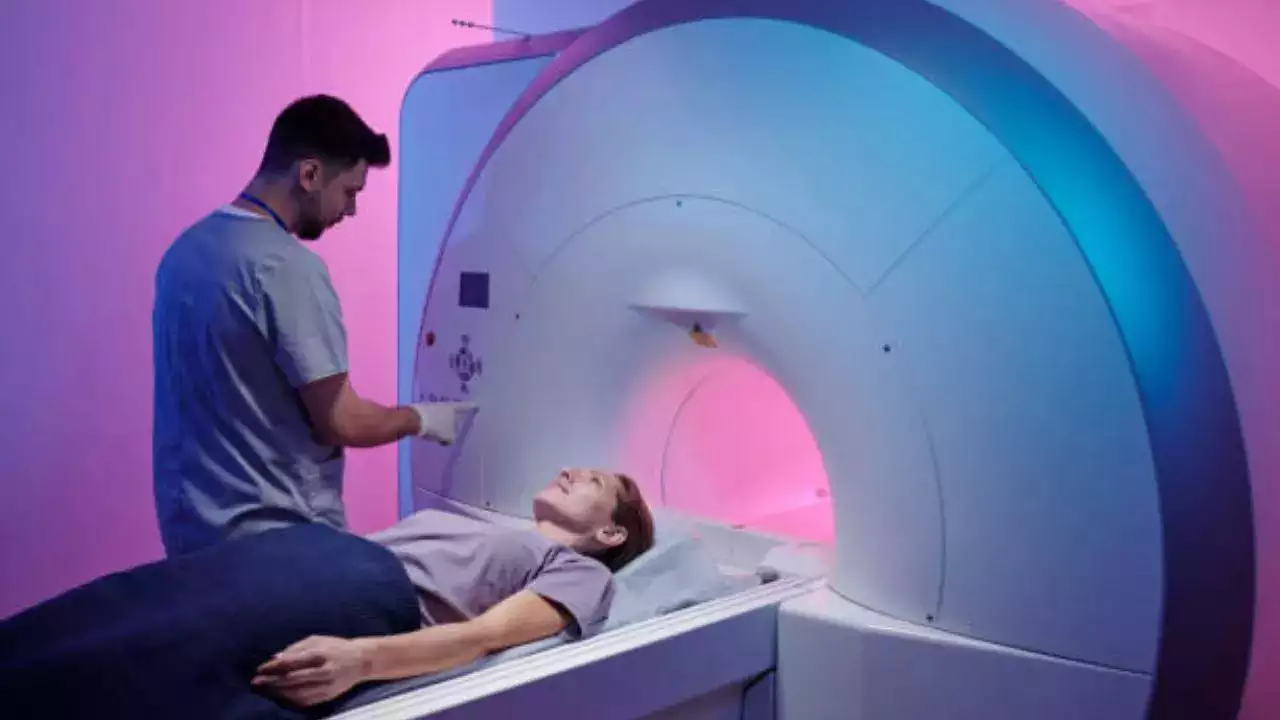
Her husband has alleged that the staff at the diagnostic center failed to recognize his wife’s pacemaker and dialysis plug
A 61-year-old woman from Eluru in Andhra Pradesh died while undergoing an MRI scan. According to news reports, the woman, a heart patient, had also been undergoing dialysis treatment and had a pacemaker fitted earlier. Her husband has alleged that the staff at the diagnostic centre failed to recognize his wife’s pacemaker and dialysis plug, which he claims led to her death during the procedure.
The woman was recommended the MRI after she experienced dizziness for several days.
What happened to her?
According to the husband, the woman was fine when the MRI procedure began but slowly began showing discomfort, but the technician ignored his requests, only further advising him to instruct her not to move.
It was later realised that she had passed away during the scan.
What does an MRI scan do?
According to doctors, an MRI, or magnetic resonance imaging scan, is a painless test that produces very clear images of the organs and structures inside your body. MRI uses a large magnet, radio waves, and a computer to produce these detailed images.
The MRI enhances the visibility of the following:
- Tumours
- Inflammation
- Infection
- Blood supply to certain organs
- Blood vessels
When do you need an MRI for heart issues?
If you have been asked by your doctor to get a cardiac MRI, it could be for several reasons, which include:
- To evaluate the anatomy and function of your heart chambers, heart valves, size, and blood flow through major vessels and the surrounding structures
- To diagnose heart conditions like tumours, infections, and inflammatory conditions
- To evaluate the effects of coronary artery disease like limited blood flow to your heart muscle and scarring within your heart muscle after a heart attack
- To evaluate the anatomy and function of the heart and blood vessels in children and adults with congenital heart disease
Is an MRI always safe?
While according to experts, it is safe to get an MRI scan as it poses almost no risk to the average person, a few appropriate safety guidelines must be followed.
The strong magnetic field the MRI machines emit is not harmful to you, but it may cause implanted medical devices to malfunction or distort the images. There is also a small risk of developing an allergic reaction if your MRI requires the use of contrast material. Doctors say these reactions are usually mild and controllable by medication, and if you have an allergic reaction, your doctor should be around.
While in most cases, an MRI exam can be safe for those with metal implants, there are a few exceptions, which include:
- Metallic joint prostheses
- Cochlear implants
- Clips used for brain aneurysms
- Metal coils placed within your blood vessels
- Older cardiac defibrillators and pacemakers
- Vagal nerve stimulators
Since the MRI scanner uses strong magnets and radio wave signals that cause heating or possible movement of some metal objects in your body, it could result in health and safety issues. If your doctor recommends an MRI scan, they would also ask detailed questions about your medical history and any medical devices or implants you may have in or on your body.
Also, leave all jewellery and other accessories at home or remove them before your MRI scan. Metal and electronic items are not allowed in the room because they can interfere with the magnetic field of the MRI unit, cause burns, or become harmful projectiles.
Get Latest News Live on Times Now along with Breaking News and Top Headlines from Health and around the world.


